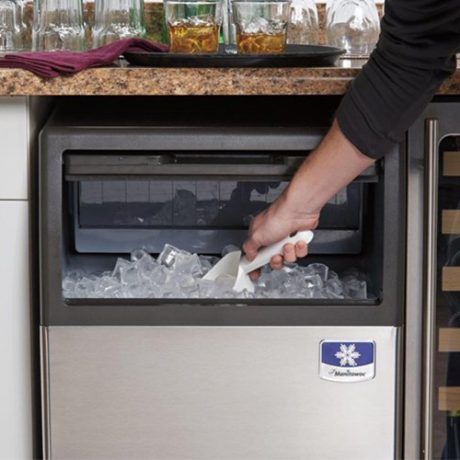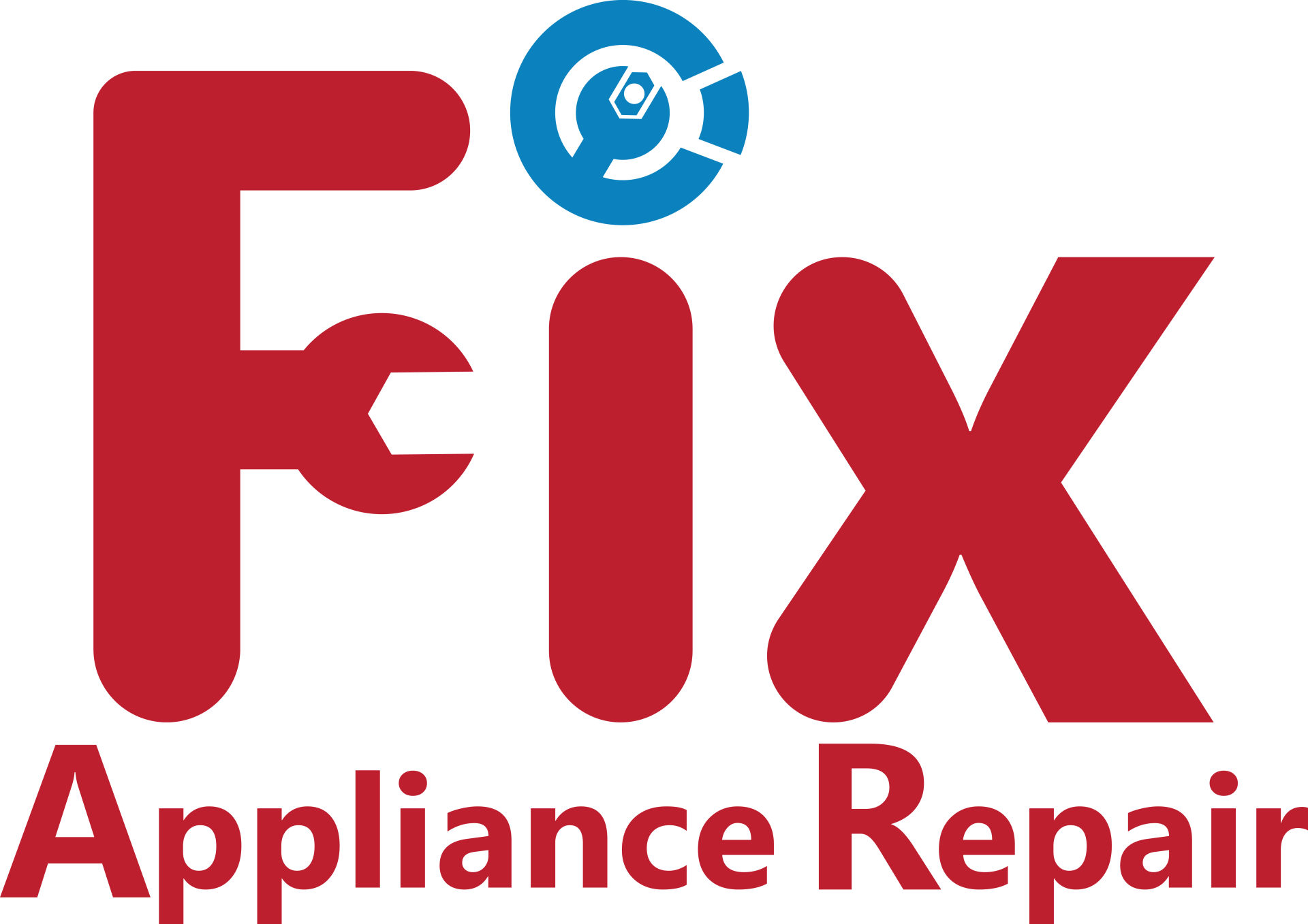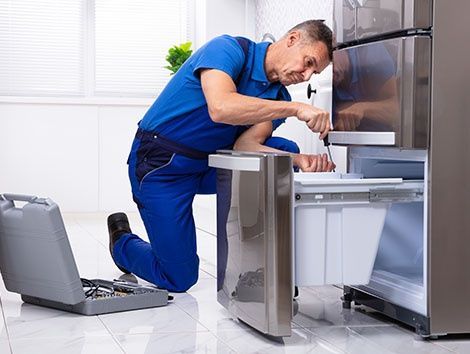Your refrigerator is one of the most essential appliances in your home, keeping your food fresh and your beverages cold. However, like any appliance, refrigerators can encounter problems that affect their performance. When your refrigerator starts acting up, it's crucial to address the issue promptly to prevent food spoilage and further damage to the appliance. In this comprehensive guide, we'll explore common refrigerator issues and provide you with DIY troubleshooting tips and fixes to get your fridge back up and running smoothly.
Refrigerator Not Cooling:
One of the most common refrigerator issues is inadequate cooling. If your refrigerator is not cooling properly, it can lead to food spoilage and waste. Start by checking the temperature settings on your refrigerator. Ensure that the thermostat is set to the recommended temperature (usually between 37°F and 40°F for the refrigerator compartment). If the temperature settings are correct but the refrigerator is still not cooling, there may be several potential causes.
- Dirty Condenser Coils: Dirty condenser coils can inhibit heat dissipation and reduce the efficiency of your refrigerator's cooling system. To clean the condenser coils, unplug the refrigerator and locate the coils either behind or beneath the appliance. Use a vacuum cleaner or condenser coil brush to remove dust, dirt, and debris from the coils. Cleaning the coils can improve cooling efficiency and restore proper temperature regulation.
- Blocked Air Vents: Blocked air vents can restrict airflow within the refrigerator, preventing cold air from circulating properly. Check the air vents in both the refrigerator and freezer compartments for any obstructions, such as food packages or debris. Rearrange items to ensure adequate airflow and avoid blocking the vents.
- Faulty Evaporator Fan: The evaporator fan circulates cold air from the freezer compartment to the refrigerator compartment. If the fan is not working correctly, it can result in inadequate cooling in the refrigerator. Listen for the sound of the evaporator fan running when the refrigerator door is open. If the fan is not running or is making unusual noises, it may need to be replaced.
Frost Buildup:
Excessive frost buildup in the freezer can interfere with the refrigerator's cooling system and affect its performance. If you notice frost accumulating on the walls or shelves of the freezer, there may be several potential causes.
- Defective Door Gasket: A worn or damaged door gasket (seal) can allow warm, moist air to enter the freezer, leading to frost buildup. Inspect the door gasket for any tears, gaps, or signs of wear, and replace it if necessary to ensure a tight seal.
- Defective Defrost Heater: The defrost heater is responsible for melting frost buildup on the evaporator coils during the defrost cycle. If the defrost heater is defective, it may not properly melt the frost, leading to excessive buildup in the freezer. Test the defrost heater for continuity using a multimeter. If the heater fails the continuity test, it will need to be replaced.
- Clogged Drain Tube: The drain tube carries water melted from the frost buildup out of the freezer and into the drain pan beneath the refrigerator. If the drain tube becomes clogged with debris, water may accumulate in the freezer and freeze, resulting in frost buildup. Clear any obstructions from the drain tube using a pipe cleaner or compressed air to restore proper drainage.
Leaking Refrigerator:
A leaking refrigerator can cause water damage to your kitchen floor and surrounding cabinetry. If you notice water pooling beneath or around your refrigerator, there may be several potential causes.
- Clogged or Frozen Defrost Drain: The defrost drain carries water melted from the frost buildup out of the refrigerator and into the drain pan. If the drain becomes clogged or frozen, water may accumulate and overflow, resulting in leakage. Clear any obstructions from the defrost drain using a pipe cleaner or hot water to restore proper drainage.
- Faulty Water Inlet Valve: If your refrigerator is equipped with a water dispenser or ice maker, a faulty water inlet valve may be the cause of the leak. Inspect the water inlet valve for any signs of damage or wear, and replace it if necessary to stop the leak.
- Cracked or Damaged Water Line: A cracked or damaged water line supplying water to the refrigerator can also cause leaks. Inspect the water line for any visible cracks or leaks, and replace it if necessary to prevent further leakage.
Noisy Refrigerator:
Unusual noises coming from your refrigerator can be disruptive and indicate underlying issues that need to be addressed. If your refrigerator is making unusual noises, there may be several potential causes.
- Dirty Condenser Coils: Dirty or clogged condenser coils can cause the compressor to work harder than usual, resulting in increased noise levels. Clean the condenser coils using a vacuum cleaner or condenser coil brush to improve airflow and reduce noise.
- Faulty Evaporator Fan Motor: A faulty evaporator fan motor can produce loud or unusual noises during operation. If the fan motor is making excessive noise or not running at all, it may need to be replaced.
- Worn or Damaged Compressor: A worn or damaged compressor can also cause noisy operation. If the compressor is making loud or unusual noises, it may need to be replaced by a qualified technician.
Easy Fixes
Troubleshooting and repairing common refrigerator issues doesn't have to be a daunting task. By following the DIY fixes outlined in this guide, you can address common problems such as inadequate cooling, frost buildup, leaking, and noisy operation and get your refrigerator back to optimal performance. Remember to prioritize safety when working with electrical appliances and consult a professional technician if you're unsure about performing any repairs yourself. With a little effort and know-how, you can keep your refrigerator running smoothly and enjoy fresh, chilled food for years to come.



